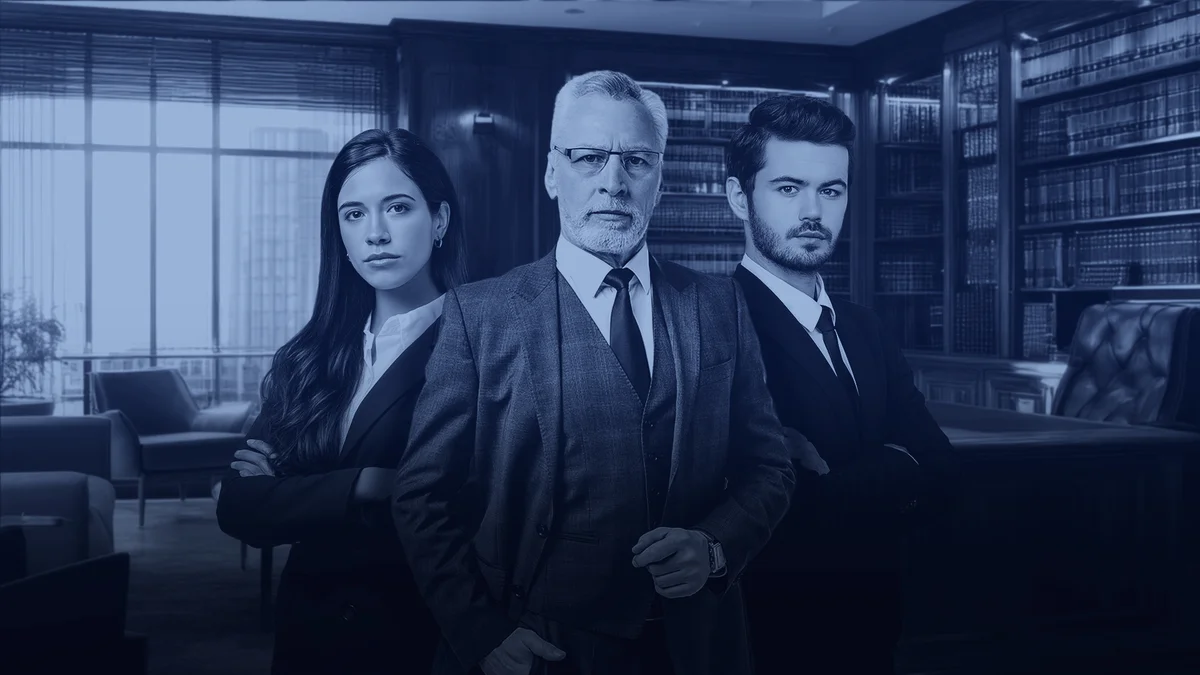Start for free and we will maximize your case success.
Fast, effective, and trusted.
Why start your case with us
Up to 3.5x more compensation
compared to insurance
Start for 100% free
for all case types
No fee unless you win. Guaranteed.
The statement regarding up to 3.5X compensation references a third-party Insurance Research Council study comparing settlements of claimants who retained attorneys versus those who did not.

The statement regarding up to 3.5X compensation references a third-party Insurance Research Council study comparing settlements of claimants who retained attorneys versus those who did not.

Why start your case with us
compared to insurance
for all case types
Find out your commercial vehicle accident case value easily and quickly
Submit your info or give us a call
We analyze your case & fight on your side
We'll call you back to discuss case value

Work with proven advocates dedicated to maximizing your settlement or verdict.















Awards shown reflect recognitions of independent attorneys or law firms with whom Accident Group Group LLC may associate with. For award details, please refer to the granting organization.
80,000-lb rigs devastate passenger cars. It may be needed to mine FMCSA logs, black-box data, and brake records to prove negligence and unlock the carrier’s multi-million-dollar policy.
Amazon, UPS, and FedEx drivers cause blind-spot impacts and rollovers. Route tracking and scanner data can pin liability on the company quickly.
Tankers hauling fuel or chemicals demand special licenses and create unique risks for other drivers.
City buses, tour coaches, and shuttles carry hefty insurance. On-board cameras and telematics can help prove fatigue, distraction, or unsafe scheduling.
Garbage, telecom, and power-company trucks strike with massive force. Fleet maintenance logs and municipal contracts can help secure full recovery.
Dump trucks, cement mixers, and boom trucks tip or spill loads in work zones. Contractor safety records reveal corners cut and multiple parties to sue.

A jackknife occurs when a truck’s trailer swings toward the cab, forming an L-shape after sudden braking or on slick roads. The trailer can sweep across several lanes and smash multiple cars.
Top-heavy trucks and delivery vans can tip during sharp turns, high winds, or when cargo shifts. A rolling vehicle may crush nearby cars or scatter debris that triggers pile-ups. We analyze police reports, black-box data, and weight tickets to show whether speed, load imbalance, or poor maintenance caused the rollover.
An underride happens when a smaller car slides beneath a truck’s trailer, shearing off the roof and causing severe or fatal injuries. Missing underride guards, weak tail-lights, or sudden stops are common factors. We use crash-scene photos and federal safety-rule checks to hold trucking firms accountable.
Trucks swing wide and trap cars or cyclists in blind spots. GPS logs and surveillance video prove failure to signal or check mirrors.
Improperly strapped or overloaded cargo shifts, topples trucks, or scatters debris. Load manifests and tie-down specs pinpoint negligent drivers, loaders, or carriers.
Multi-vehicle accidents (chain-reaction pile-ups) involve three or more vehicles, often starting with one crash that triggers others on busy roads or highways. Figuring out who is at fault can be difficult since multiple drivers may share blame. A multi-vehicle accident attorney can analyze the crash, determine each party’s liability, and help ensure injured victims pursue all possible compensation.
Have more questions? Our team is here to answer them.
